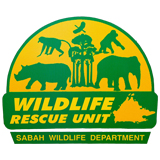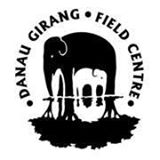In the Northeast corner on the island of Borneo, the Malaysian state of Sabah has been experiencing an increase in the number of slow lorises that have been confiscated or rescued after being injured as a result of human expansion. In the last two years, an average of one slow loris every 2 months is being confiscated or handed over to the local wildlife enforcement agencies. We are working together in Sabah to develop a rehabilitation and release program to get the suitable slow lorises back into the wild as soon as possible. Unlike many slow lorises rescued in other countries, the slow lorises rescued in Sabah still have all their teeth – the process of removing canines from the lorises has thankfully not been seen in Sabah yet. This gives our slow lorises a greater chance for a successful reintroduction into their native habitat.
Sabah’s slow lorises have been very understudied in the past. The Sabah Wildlife Department, through it’s Wildlife Rescue Unit (WRU) and Danahttp://www.wildlife.sabah.gov.my/u Girang Field Centre (DGFC) have been working together to rectify this. We are taking genetic samples from the lorises that have been rescued throughout the state, as well as from our wild study subjects, to get a better understanding of the species distribution throughout the state. DGFC has also been working hard over the past six years to understand the animals in the wild by using radio-telemetry to track individuals to learn about their normal activity patterns, diet, social behaviours and sleeping site selection. We will use this information from the wild when monitoring the slow lorises in their rehabilitation cages to know if and when they are ready for the next stage in the release process.
This program will also be heavily involved in capacity building, training Malaysian University students and volunteers, and local villagers in behavioural data collection and monitoring, which in turn will hopefully lead to a greater awareness in the local communities about these creatures and reduce the demand for keeping lorises as pets and appreciating the role they play in the wild.
- Dr. Diana Ramirez, Wildlife Veterinarian with the Wildlife Rescue Unit
- Danica Stark, primatologist at Danau Girang Field Centre
- http://www.wildlife.sabah.gov.my/
- https://www.facebook.com/Wildlife-Rescue-Unit/
- https://www.facebook.com/Danau-Girang-Field-Centre/


